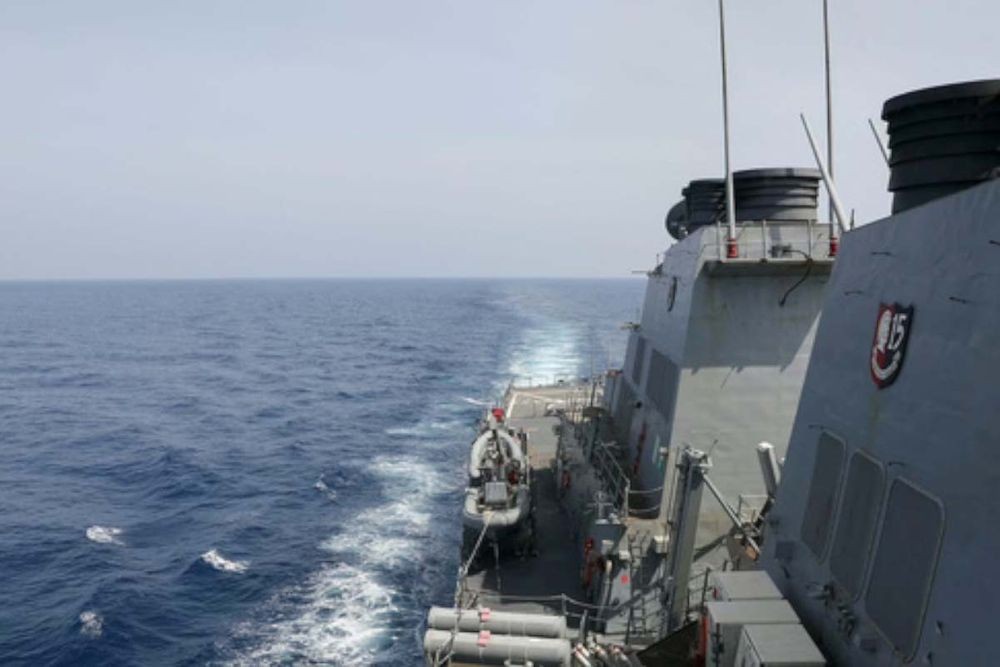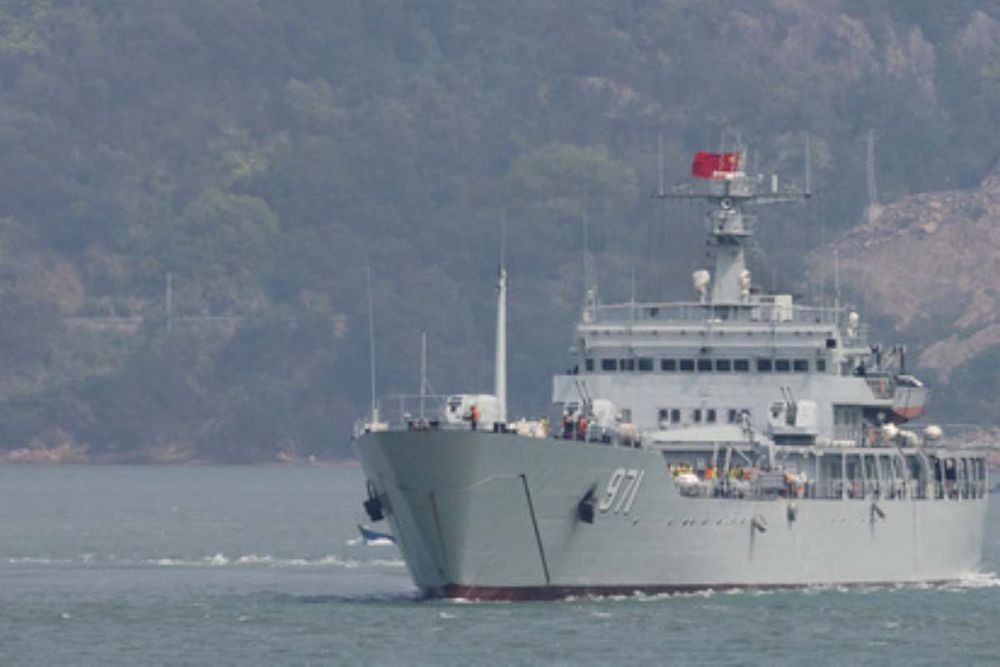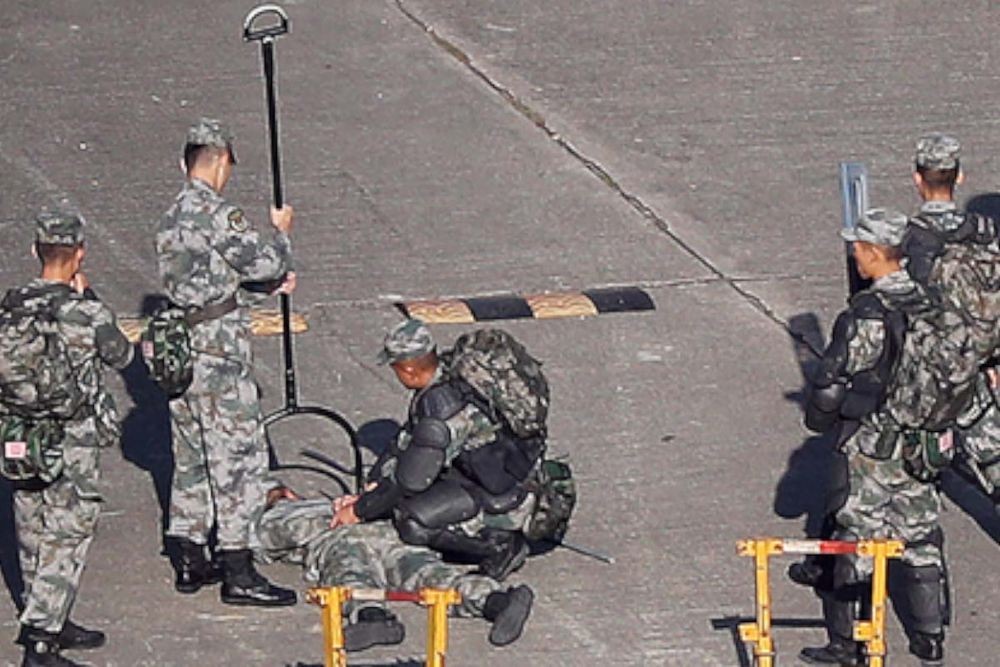China Unveils Upgraded Z-21 Helicopter
Collision Between Taiwanese Coast Guard and Chinese Fishing Vessel, Water Cannon Deployed
Tensions in the Taiwan Strait Spill Over, Impacting South Korea

The South China Morning Post (SCMP) reported on the 26th that China showcased an attack helicopter equivalent to the U.S. AH-64 Apache on China’s social media platform Weibo last week. Experts who saw the report speculate it is a Z-21, an upgraded version of the Chinese military’s currently operating Z-20. The attack helicopter unveiled by China is known to have been developed with a focus on conflicts with Taiwan and India, which China views as hostile countries.
In addition, some analysts suggest that the helicopter could be a strategic weapon for controlling the Taiwan Strait and invading Taiwan.
Lu Li-Shih, a former instructor at the Taiwan Naval Academy, analyzed, “The Chinese military is trying to establish a battle framework with helicopters and enhance its amphibious three-dimensional combat capabilities,” and that the Z-21 attack helicopter will be used at the forefront of warfare. In fact, the Chinese navy has been training with the 075-type amphibious assault ship, an improved version of the 071-type amphibious assault ship used since 2007, due to a lack of helicopter operation capabilities.
He predicted, “The Z-21 will play an important role in all major and minor conflicts related to the Taiwan Strait,” and “Depending on the situation, the Z-21 could even reach the eastern part of Taiwan across the central mountainous terrain, or even the Philippines based on its excellent performance.”
In addition, the Z-20 helicopter, known as the Chinese version of the Black Hawk, is a multipurpose helicopter with a capacity of 10 tons used for anti-terrorism by the military and police, disaster relief, anti-submarine warfare, early warning, and transport operations. It is reportedly deployed not only in border areas with India but also in high-altitude areas such as the Qinghai-Tibet Plateau, which is about 8,202 feet above sea level.

As military tensions around the Taiwan Strait escalated over time, the Taiwanese Coast Guard forcefully expelled Chinese fishing vessels in the frontline Penghu waters using powerful water cannons, according to Taiwanese media reports on the 22nd.
The Taiwanese Coast Guard announced that it had cracked down on a Chinese ghost fishing vessel, without a ship name, near the military stronghold of Penghu Island, which is close to the median line of the Taiwan Strait.
Specifically, a Chinese fishing vessel appeared in the waters near the southwest of Maowei Island in Penghu, and a few days later, five Chinese fishing vessels were found approximately 11.5 miles south of Chimei Island. At the time of the incident, due to strong winds and high waves reaching around 9.8~13.1 feet, they renounced boarding inspections but requested departure through warning broadcasts. However, they repeatedly used water cannons against the vessels that did not comply with the instructions, forcing them out of Taiwanese waters.
The Coast Guard reported that Chinese fishing vessels are illegally fishing in Taiwanese waters, crossing the median line of the strait on strong northeast seasonal winds.

Amid the current situation, the Taiwanese were caught by the Chinese Coast Guard. They went salt-water fishing and ended up drifting as they encountered heavy fog, ran out of fuel, and were rescued by the Chinese Coast Guard. They were supposed to be returned via sea. But the return of one of them, Mr. Hu, has been indefinitely postponed as it was revealed that he is an active-duty sergeant affiliated with the Taiwan Army Jinmen Defense Command.

The conflict in the Taiwan Strait is also continuing in South Korea. Lee Jae Myung, the leader of the Democratic Party, strongly criticized the Yoon Suk Yeol administration, saying, “What does the Taiwan Strait have to do with our country?” as if the government is trying to interfere with the cross-strait issue that China dislikes. However, the government’s official responded, “It was Moon Jae In administration that formulated the position to maintain peace and safety in the Taiwan Strait.” Domestic diplomatic and security experts unanimously point out that the crisis in the Taiwan Strait could be directly linked to the actual security vacuum on the Korean Peninsula.
Previously, Representative Lee Jae Myung criticized the government at the Chungnam election campaign site, saying, “Why do we put nose in China?” and “Why is the government interfering with the cross-strait issue? What does the situation in the Taiwan Strait have to do with us?”
The Korean government’s stance on recognizing the “importance of maintaining peace and stability in the Taiwan Strait” was first revealed in the joint statement of the South Korea-U.S. summit held in 2021. It states, “President Biden and former President Moon Jae In emphasized why it is important to maintain peace and stability in the Taiwan Strait.” Because the Moon administration fully agreed to include the Taiwan issue in the joint statement, which was expected to provoke China’s’ backlash, unlike the previous position of maintaining ambiguity between the U.S. and China, there were numerous questions in the press conference to the former President Moon at that moment. Immediately after, China criticized the Moon administration, expressing discomfort by saying, “Korea should not play with fire over the Taiwan issue.”
Experts predict that if the crisis in the Taiwan Strait becomes a reality, it could significantly impact Korea’s economy and security. In recent years, U.S. think tanks and foreign media have been forecasting bad conditions and drawing scenarios in which China mobilizes warships, submarines, and fighter jets to blockade Taiwan’s ports and airspace with coercion, and the U.S. intervenes to break the blockade.










Most Commented